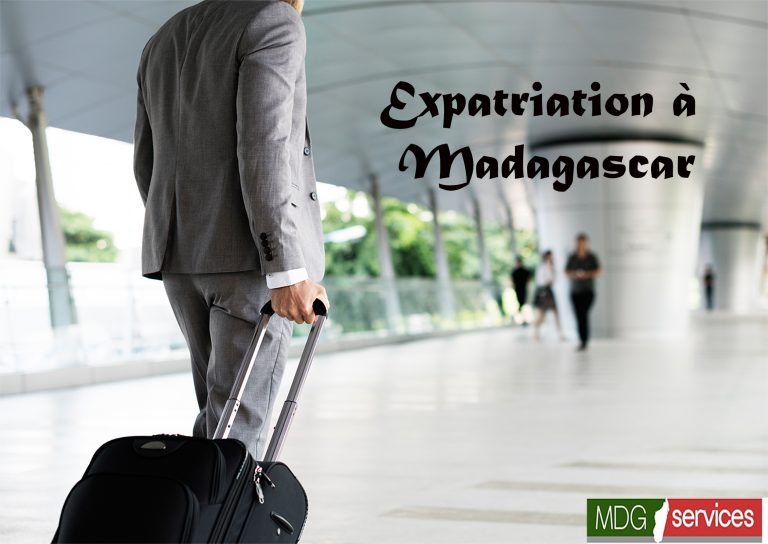The expatriate is a particular category of emigrant. They may move for personal, family or professional reasons, whether for study, career prospects, a desire to discover new things or as a result of civic punishment (this is called exile). In common parlance, the term “expatriate” generally refers to a Western person holding the nationality of a developed country and working abroad because of their globally recognised skills. The formal definition of expatriate does not, however, specify reasons for expatriation.
Living or settling in Madagascar is above all a matter of life choice, whether you want to invest or work there, study or even retire.
Before choosing the country to which you want to expatriate, it is necessary to do some research, to make comparisons, to analyse the advantages and disadvantages on different aspects: security, tourist sites, schools, climate, customs, population… etc.

Cost of living in Madagascar
Thousands of foreigners choose to settle in Madagascar in order to enjoy a low cost of living and a favourable tax system. Life is not expensive on the island, on the contrary. It is possible to live there without having hundreds of euros in your pocket. And once you’ve paid for travel, accommodation and food, you’ll have enough left over to visit the tourist destinations. In addition, taxes are generally lower than elsewhere. This is a considerable advantage.
So many worries about your children’s schooling during your expatriation to Madagascar?
It is important that your children’s schooling is in line with the life you want to lead during your expatriation to Madagascar.
Discover the different schools in Madagascar for your children’s education.
Social security coverage for expatriates in Madagascar
For information on social security coverage (health, old age, maternity, retirement, complementary, provident institutions): before leaving your current country, it is imperative that you find out about the social security coverage you will be able to benefit from in Madagascar.
This is an essential step that you should not neglect when planning your expatriation to Madagascar. The social and medical coverage in the Big Island is much more modest than in France. For professional expatriates, depending on their contract, they can either be affiliated to the French social security system or to the Caisse Nationale de Prévoyance Sociale. To the same extent, the employee and his/her family will be affiliated to a cover offered by the employer. If you are retired, it is possible to join a health insurance scheme with the “Caisse des Français de l’Étranger” or CFE if you have French nationality. Taking out insurance with a private insurance company is also an option with its own advantages.
The different categories of residence visa in Madagascar
The category of visa to adopt depends on your project in Madagascar, either by marrying a person of Malagasy nationality or by the career to be chosen in Madagascar.
- Convertible visa: any expatriate wishing to settle in Madagascar must apply for a convertible visa at the Embassy of Madagascar in his country of origin. This visa will be issued, with a validity of 1 (one) month, from the arrival of the person concerned in the country. Thus, like all other categories of visas, there are files to be provided and fees associated with obtaining this convertible visa.
- Worker visa: a long stay visa, granted to the expatriate worker and after having benefited from a convertible visa. The person concerned will have one (1) month to make the first application for a worker visa. First of all, it is necessary to know the different procedures in order to regularise the situation of the expatriate, in the Malagasy territory, such as the modalities of obtaining the worker visa and the fees related to the application
- Investor visa: granted to expatriates wishing to invest in Madagascar. Relatively easy to obtain after having opened a structure in Madagascar or being associated in a local company, it allows to obtain a right of residence going up to 10 years after several renewals, even permanent.
- Family reunion visa: allows expatriate spouses to live for a long period in Madagascar. Same procedures as the other types of visas, steps are to be followed for the application in the preparation and monitoring of the progress of the files
- Retired Visa: reserved for foreigners wishing to spend their retirement in Madagascar. The certificate of retirement with a proof of payment of pensions in a local bank are the main files required for this type of visa.
Visa and residence card fees
In any case, the MDG Services team is at your disposal to help you obtain your visa for Madagascar.
We provide you with all the necessary advice and support in all the administrative procedures to achieve your expatriation project.
